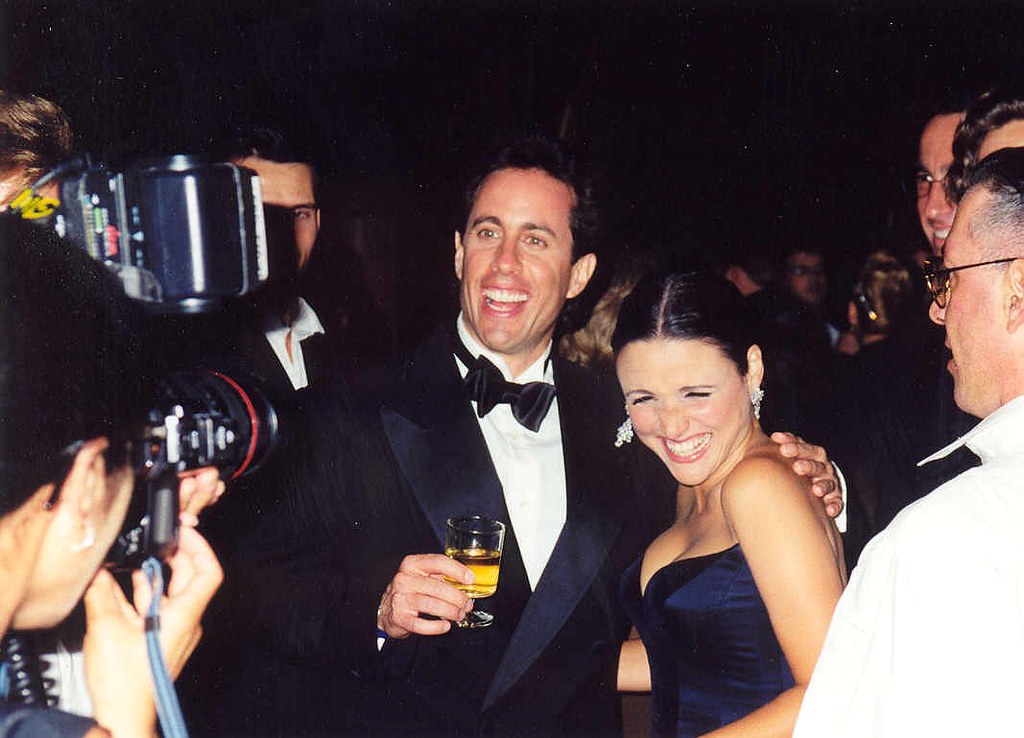
In an era where a well-timed joke can echo far beyond the comedy club stage, some of the world’s most brilliant comedic minds are not just making us laugh; they’re building colossal empires. Forget the struggling artist trope – today’s top comedians are savvy entrepreneurs, transforming punchlines into multi-million and even billion-dollar fortunes. It’s a fascinating blend of artistic talent, business acumen, and a keen understanding of how to leverage intellectual property in an ever-evolving digital landscape.
From the classic sitcoms that defined a generation to the streaming deals that reshape our viewing habits, these comedy titans have mastered the art of diversification. Their wealth isn’t just about selling out arenas; it’s about owning their content, investing strategically, and understanding the incredible long-term value of a beloved character or a universally relatable bit. We’re talking about a whole new level of celebrity, where comedic genius meets serious financial savvy.
So, if you thought comedy was just about the stage, think again. These individuals have redefined what it means to be a successful entertainer, proving that a sharp wit and a smart business plan can indeed lead to generational wealth. We’re about to pull back the curtain on some of the biggest names in the game, exploring exactly how they’ve turned laughter into legendary financial legacies.
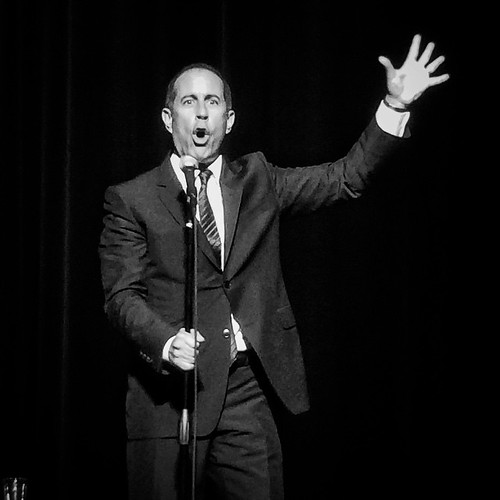
1. **Jerry Seinfeld: The Enduring Power of a Sitcom Legacy and Live Performance**
When you talk about comedic wealth, Jerry Seinfeld is arguably the gold standard. He officially became a new entry on Forbes’ 2025 billionaire roll, reaching an impressive $1.1 billion. This isn’t just pocket change; it’s a testament to a career built on meticulous craftsmanship and smart business decisions. His valuation isn’t a fluke; it’s a direct result of several incredibly potent income streams that most performers only dream of.
The backbone of Seinfeld’s staggering net worth undoubtedly rests on the still-prolific cash machine that is the *Seinfeld* backend and licensing. Decades after its finale, the show continues to generate immense revenue through syndication deals, proving that truly great content has an almost infinite shelf life. This steady, passive income stream is the kind of financial bedrock that allows for incredible flexibility and continued growth, constantly compounding his wealth year after year.
Beyond the sitcom, Seinfeld has expertly navigated the modern entertainment landscape, embracing new avenues like Netflix stand-up specials. These deals not only provide a massive upfront payout but also introduce his timeless humor to new generations of viewers, ensuring his relevance remains undiminished. He’s not resting on his laurels; he’s actively engaging with current distribution methods, proving that classic comedy can thrive on cutting-edge platforms.
But it’s not just about screen time. Seinfeld’s relentless arena touring keeps his draw and pricing power exceptionally high. This isn’t just about performing; it’s about maintaining a direct connection with his audience, showing that the live experience is still a premium commodity. His ability to consistently sell out massive venues demonstrates an enduring popularity that few comedians can match, adding significantly to his annual cash flow.
Seinfeld’s career is a masterclass in how a durable library, combined with premium live demand and strategic media partnerships, can transform a comedian into an enduring media asset. He’s not just a year-to-year earner; he’s built a perpetual motion machine of humor and finance, solidifying his place at the very top of the richest comedians in the world. His historically premium sponsorships, like luxury auto tie-ins on *Comedians in Cars Getting Coffee*, further underscore his high-value brand image.
Read more about: Remember the ’90s? These 12 Comedy Icons Had Us Absolutely ROLLING and Are Still Crushing It Today!
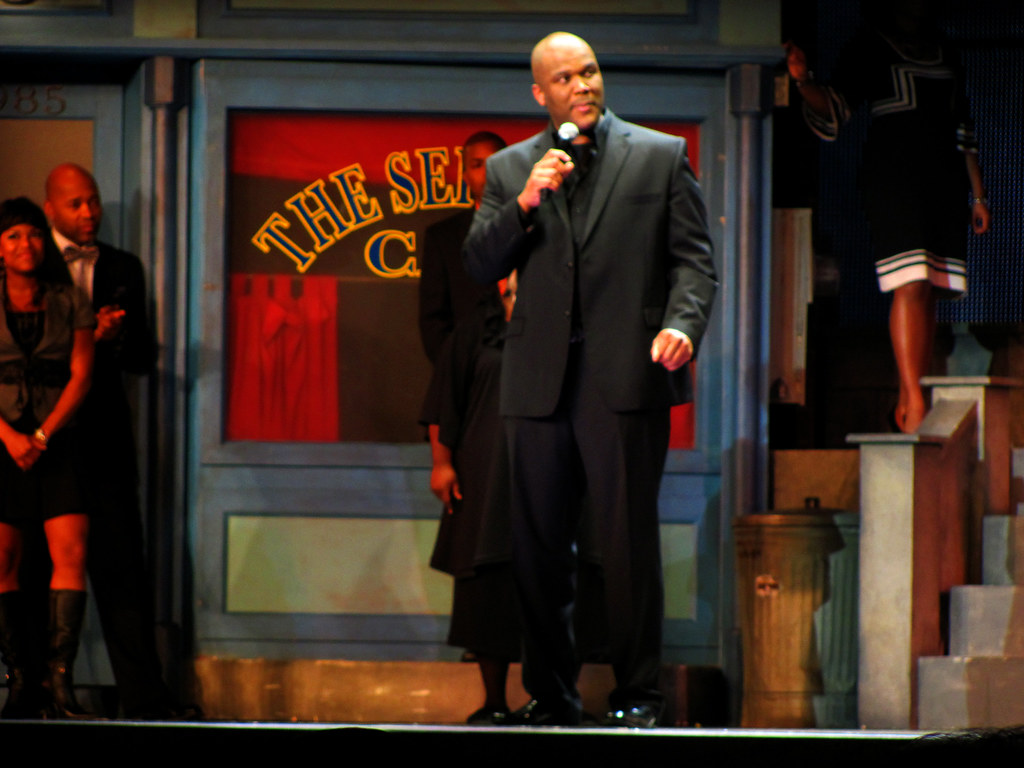
2. **Tyler Perry: From Madea to Mogul – Building a Vertically Integrated Media Empire**
Tyler Perry stands as another beacon of immense wealth in the comedy world, with Forbes reporting him as a real-time billionaire, approximating $1.4 billion as of September 2025. While many recognize him as a filmmaker and mogul, his roots in comedy, particularly through his iconic Madea character and stand-up-adjacent stage films, firmly place him among the richest comedians globally. His trajectory is a powerful example of how comedic IP can be leveraged into a vast, diversified business.
What truly sets Perry apart is that his wealth isn’t merely derived from performance income or acting fees. He has masterfully constructed a vertically integrated studio, complete with soundstages and an extensive film and TV library. This means he owns the means of production, distribution, and the content itself. This level of ownership is a game-changer, allowing him to control every aspect of his creative output and, more importantly, to capture a significantly larger share of the revenue generated.
The strategic genius behind Tyler Perry Studios is evident in how his library consistently throws off cash and bargaining power. Licensing his vast catalogue of films and TV shows to various platforms and networks generates substantial, diversified earnings. This isn’t just about making one-off hits; it’s about building a sustainable ecosystem where every piece of content contributes to the overall financial health of his empire through output deals and streaming licensing.
Perry’s relentless work ethic and innovative approach to content creation have allowed him to transcend traditional entertainment boundaries. He’s not just writing, directing, and starring; he’s building a formidable business structure that ensures long-term profitability and creative independence. His production and distribution partnerships further amplify his reach and impact, turning every project into another building block for his ever-growing fortune.
Beyond the studio, Perry engages in brand collaborations tied to his film launches and extensive philanthropy. This dual approach reinforces his reputation capital, making him not just a financial powerhouse but also a respected figure in the industry and community. His holistic approach to business and brand management showcases why he is consistently cited among the richest comedians in the world, embodying the true spirit of a self-made media titan.
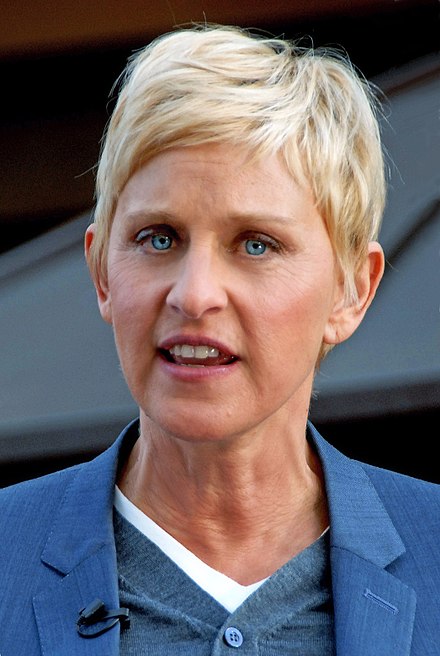
3. **Ellen DeGeneres: The Talk Show Titan’s Diverse Portfolio and Post-Show Riches**
Ellen DeGeneres, with a net worth of $450 million according to Forbes 2025 Self-Made Women, offers a compelling narrative of how comedic talent can evolve into a multi-faceted business empire. Her journey from a groundbreaking stand-up comedian to a network sitcom star and eventually a daytime talk show juggernaut is a testament to her versatility and enduring appeal. Her financial success is a clear indicator that a strong personal brand, when nurtured correctly, can translate into significant wealth.
Ellen’s multi-decade arc laid a robust foundation for her current financial standing. Her eponymous talk show, *The Ellen DeGeneres Show*, became a global phenomenon, captivating audiences for years and cementing her status as a household name. This consistent exposure and widespread popularity were instrumental in building one of the strongest personal balance sheets among the richest comedians. The show itself was a massive earner, generating revenue through advertising, syndication, and merchandising.
Even after her talk show concluded, Ellen strategically doubled down on real-estate investing, a smart move that continues to contribute significantly to her net worth. The ability to pivot into different investment avenues, particularly high-value assets like real estate, demonstrates a keen financial mind at work. This diversification ensures that her wealth is not solely dependent on her on-screen presence but is also fortified by a robust portfolio of assets.
Her ongoing production income and syndication remnants from her past work, including the talk show, continue to provide a steady stream of earnings. Content from a long-running, successful show has an incredible shelf life, meaning that the work done years ago still generates revenue today. This ongoing passive income is a crucial element of sustained wealth for many entertainers who build extensive content libraries.
Ellen’s company, A Very Good Production, along with various brand and content ventures and the churn of her real-estate portfolio, keeps her financial flywheel turning. She has also maintained long-standing advertiser relationships from her talk-show era and engaged in lifestyle collaborations, further amplifying her brand value. This strategic engagement ensures that her influence and earning potential extend well beyond the immediate spotlight, securing her position as one of the richest comedians in the world.
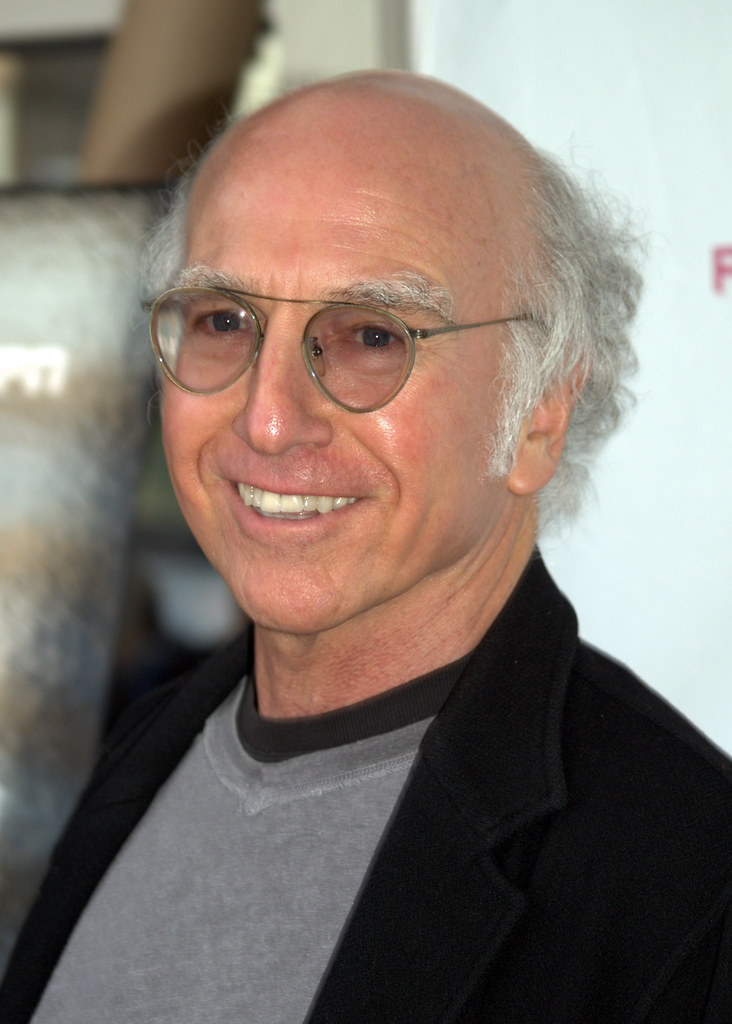
4. **Larry David: When Seinfeld Meets Curb, But Not Quite Billionaire**
For years, the internet was buzzing with rumors that Larry David, the mastermind behind some of television’s most iconic cringe comedy, was a billionaire. It was a juicy tidbit, considering his reputation for the subtly brilliant and often awkward. However, Forbes stepped in during 2024 to set the record straight, clarifying that while incredibly wealthy, his net worth stands at ‘just under $400 million.’ Still, in the world of comedic wealth, that figure comfortably places him among the elite, proving you don’t need a ‘B’ to be a big deal.
His impressive financial standing is primarily powered by the legendary backend earnings from *Seinfeld*, a show he co-created, and the incredibly long and consistently premium run of *Curb Your Enthusiasm*. It’s a testament to the enduring value of intellectual property when you create content that not only resonates deeply with audiences but also stands the test of time, generating revenue years, even decades, after its initial release. This isn’t just about making people laugh; it’s about crafting legacies that pay dividends.
Larry David’s current earnings streams are as steady as his deadpan delivery. He continues to benefit from ongoing participation in *Curb Your Enthusiasm*, ensuring that every new season or re-run adds to his impressive financial tapestry. Beyond that, a significant portion of his wealth comes from residual and royalty streams from his extensive body of work, alongside select live appearances that command premium prices, showcasing that his unique brand of humor still draws a dedicated audience for in-person experiences.
The foundation of his wealth is heavily built upon his co-creator backend in *Seinfeld*, a show whose syndication and streaming rights continue to be a veritable goldmine. Coupled with his long-standing and lucrative relationships with giants like HBO and Warner for *Curb Your Enthusiasm*, David has skillfully leveraged his creative genius into robust financial partnerships. These deals ensure that his comedic vision not only reaches massive audiences but also secures his financial future through strategic ownership and distribution agreements.
While he might not be the face of major endorsement campaigns in the same way some other comedians are, Larry David’s brand value is largely derived from the sheer prestige of his television work and the enduring power of his legacy intellectual property. His appearances in select commercial cameos, usually with a self-aware, ironic twist, only reinforce his unique persona and the high-value perception of his brand. This approach highlights classic traits seen among the richest comedians in the world who prioritize intellectual property weight over broad commercial ubiquity, cementing his status as a comedic titan with serious financial clout.

5. **Kevin Hart: The Earnings Engine That Never Quits**
If you’re looking for a comedian who embodies the definition of a relentless ‘earnings engine,’ look no further than Kevin Hart. He’s a textbook example of someone whose incredible annual income perfectly illustrates his financial might, even in the absence of a routinely published net-worth figure. Forbes, in 2024, spotlighted his staggering $81 million in earnings, placing him squarely among the top comedians and near the very pinnacle of Hollywood’s highest earners. It’s clear that when it comes to generating cash, Hart is in a league of his own, driven by a powerhouse combination of ventures.
Kevin Hart’s incredible financial success is fueled by a multi-pronged attack on the entertainment industry. His global touring schedule is legendary, with sold-out arena dates contributing massively to his annual income, demonstrating his unparalleled connection with a massive, dedicated fanbase around the world. Beyond the stage, his savvy navigation of film and streaming deals, including numerous projects with major platforms, ensures a constant flow of income. This diversified slate is a key reason he remains in the front pack of the richest comedians in the world by income power, always expanding his reach and revenue streams.
A significant factor in Hart’s burgeoning empire is his content studio, HARTBEAT. This isn’t just a vanity project; it’s a serious business venture with a widely reported valuation around $650 million in recent coverage. HARTBEAT serves as a crucial engine for future wealth creation, allowing Hart to own and control a vast array of comedic content, from films to television shows and digital series. By building out his own production hub, he’s strategically positioning himself for long-term financial growth and creative independence, mirroring the moves of other top-tier moguls.
What truly sets Hart apart in the endorsement arena is the sheer scale and diversity of his sponsor portfolio. Few comics can match his impressive roster of partnerships that span across major industries. We’re talking about robust collaborations with banking giants like Chase, consumer packaged goods titans like P&G, retail behemoths such as Walmart, and digital powerhouses in gaming with DraftKings, as well as significant deals in streaming with Netflix. These alliances not only bring in substantial income but also amplify his brand presence across virtually every consumer touchpoint, making him an inescapable force in popular culture.
Kevin Hart’s career is a masterclass in how a comedian can transform raw talent and tireless work ethic into a sprawling multimedia enterprise. His ability to connect with audiences, coupled with smart business decisions across touring, content production, and strategic brand partnerships, solidifies his position as a leading financial force in the comedy world. He isn’t just making people laugh; he’s building an institution, proving that an energetic comedian with a clear vision can indeed build generational wealth through sheer entrepreneurial drive.
.jpg)
6. **Adam Sandler: The Netflix Era’s Unofficial King of Comedy Cash**
Adam Sandler, a name synonymous with feel-good, often goofy, cinematic comedy, might not have an officially published net-worth figure from a single source, but his consistent presence on Forbes’ earnings lists speaks volumes about his financial standing. His earnings emphatically confirm his place in conversations about the richest comedians in the world, with a reported $73 million in 2023 – an industry-leading figure for actors that year – and a robust $26 million in 2024. These numbers aren’t just impressive; they tell the story of a comedian who has shrewdly adapted to the modern entertainment landscape.
Sandler’s successful pivot into the “Netflix era” has been nothing short of brilliant. He understood the shifting tides of content consumption early on, forging a deep and mutually beneficial relationship with the streaming giant. This collaboration ensures a consistent cadence of Netflix films, effectively creating a direct pipeline for his unique brand of humor straight into millions of homes worldwide. This continuous output, a true “flywheel” of content, allows him to maintain relevance, engage his loyal fanbase, and generate substantial, predictable income year after year, proving the power of exclusive streaming deals.
Beyond his lucrative streaming endeavors, Adam Sandler’s enduring appeal is vividly demonstrated by his sold-out arena dates. Even after decades in the spotlight, fans still flock to see his live performances, where he often blends stand-up with musical comedy and nostalgic bits. These tours are not just a chance to connect with his audience; they are a significant component of his cash flow, showcasing the enduring demand for the live experience. Coupled with merchandising efforts tied to his films and persona, these elements keep his financial engine humming.
At the core of his creative and financial control is his production company, Happy Madison Productions. While the context provides a concise mention of “Happy Madison Pro,” its role is implicit in the steady stream of content Sandler produces. This ownership structure allows him to develop and produce projects tailored to his comedic style, starring himself and often his long-time collaborators. This level of creative and executive control is a vital asset for any entertainer aiming to build lasting wealth, ensuring that he reaps the benefits of his intellectual property and continuous output, rather than merely being a hired performer.
Adam Sandler’s career highlights how a strategic approach to both traditional and new media can lead to remarkable and sustained financial success. By leveraging the massive reach of streaming platforms, while also maintaining a strong presence in live performance, he has crafted a unique and powerful model. His consistent ability to entertain, combined with smart business decisions in content creation and distribution, firmly establishes him as one of the world’s wealthiest comedians, continuously evolving and thriving in an ever-changing industry.
And there you have it – a deep dive into the extraordinary financial empires built on laughter. From the backend of iconic sitcoms to vertically integrated studios, from relentless global tours to game-changing streaming deals, these comedians have not just mastered the art of making us laugh; they’ve mastered the art of turning that laughter into astronomical wealth. Their stories are a testament to the incredible entrepreneurial spirit within the entertainment industry, proving that with wit, wisdom, and a whole lot of hustle, comedy can indeed lead to generational fortunes. It’s a fascinating world where punchlines pave the way to unimaginable prosperity, continually reshaping what it means to be a truly successful entertainer in the digital age.




